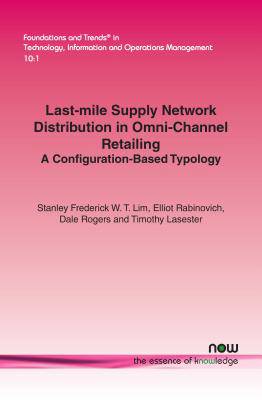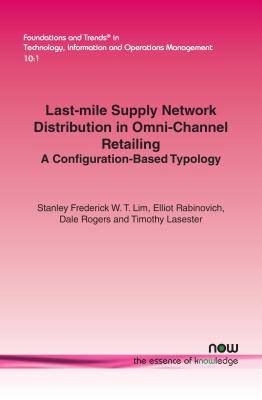
- Afhalen na 1 uur in een winkel met voorraad
- Gratis thuislevering in België vanaf € 30
- Ruim aanbod met 7 miljoen producten
- Afhalen na 1 uur in een winkel met voorraad
- Gratis thuislevering in België vanaf € 30
- Ruim aanbod met 7 miljoen producten
Zoeken
Last-mile Supply Network Distribution in Omni-Channel Retailing
A Configuration-Based Typology
Stanley Frederick W. T. Lim, Elliot Rabinovich, Dale S. Rogers, Timothy M. Lasester
€ 79,95
+ 159 punten
Omschrijving
Failures in OCR strategies to optimize the trade-offs between responsiveness and variety are rooted in a poor understanding of how OCR strategies should build on last-mile supply network (LMSN) distribution configurations. This book addresses this issue by developing a typology of LMSN distribution configurations in OCR.
Specificaties
Betrokkenen
- Auteur(s):
- Uitgeverij:
Inhoud
- Aantal bladzijden:
- 100
- Reeks:
Eigenschappen
- Productcode (EAN):
- 9781680831849
- Verschijningsdatum:
- 30/11/2016
- Uitvoering:
- Paperback
- Afmetingen:
- 243 mm x 236 mm
- Gewicht:
- 168 g

Alleen bij Standaard Boekhandel
+ 159 punten op je klantenkaart van Standaard Boekhandel
Beoordelingen
We publiceren alleen reviews die voldoen aan de voorwaarden voor reviews. Bekijk onze voorwaarden voor reviews.








